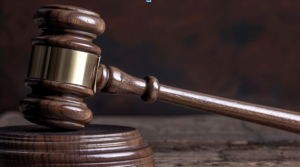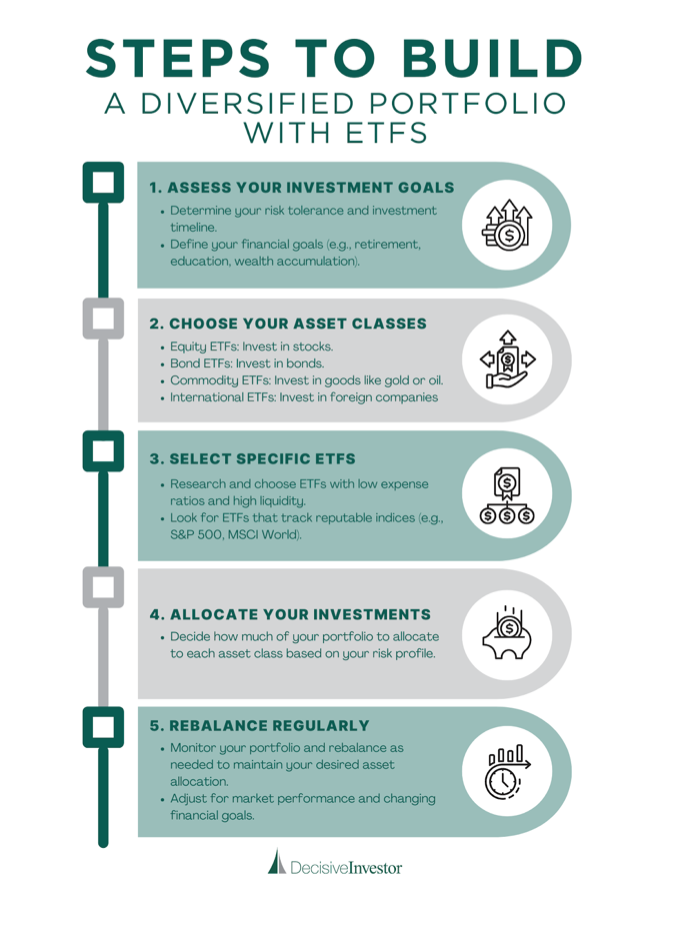by JTwisdom | Nov 4, 2025 | Lifestyle |
Going on maternity leave is one of the most daunting and exciting stages of your pregnancy. You know that the end is near, your life is about to change forever, and you have months ahead of you to care for your little one. If you are passionate about your career, you must start taking steps to prepare your company for your departure and pave the way for your return. Of course, you may find that your plans change somewhere down the line, but it will still give you peace of mind when you know that you have made all the necessary preparations.

Photo Credit – Photo by MYKOLA OSMACHKO:
Achieving a work-life balance is the ultimate goal when you return to your job, which is something that more and more women intend to do. So, let’s look at some ways that you can prepare your company and yourself for your impending departure.
Inform Your Boss and Clients
Though you will be very excited to tell your friends at work about your big news, it is also a good idea to inform your boss at the earliest possible opportunity—preferably before your bump starts showing! Speak to them in person at first, and then draft a maternity leave letter that outlines your intentions. Of course, these are just preliminary plans that may adapt and change over time. You will also want to inform your clients about your big news, preferably with plenty of time to spare, and when the plans about covering your absence are firmly in place. This way, you will be in the best position to explain how things will work while you are away.
Plan Your Leave
Once you know the date that you will be going on maternity leave, you can start preparing for your departure. Make a list of all your tasks at the company and who will take them over. If it is a current team member, you can start getting them up to speed as soon as possible. If someone is going to be covering for you on a short-term basis, you can make a document that helps them to transition into the role.
Crunch the Numbers
Making a detailed budget is always a good idea, no matter your financial situation, but it is essential if you are about to have a child. It may be quite challenging to calculate all your expenses in detail, but it is a good idea to make a rough estimate. You can then weigh this up against the amount of money that you receive from your maternity leave and any other sources of income. If you can also accumulate some savings, it is always a good idea to have a contingency plan in case your expenses turn out to be much higher than expected.
Plan Your Childcare
Though this may seem like a very early time to start planning your childcare, you can never be overprepared. It is worth visiting different centres to look at their facilities and see how they operate on a day-to-day basis. You can also find out about their availability and how far in advance you need to apply. The other potential option is hiring a nanny, so it is worth considering the pros and cons of this approach. A nanny gives your child individual attention and care. You can also look up 3 month old milestones to see how your baby is likely to develop. On the other hand, a daycare centre allows them to interact with other kids. A big influencer in your decision will be the standard of care available in your local area, and how your and your partner’s jobs will fit around what is available.
Stay in the Loop at Work
In most workplaces, things tend to change at a fairly rapid rate, and it is worth keeping track of what is going on—even if it is just the occasional update from a close work friend. Even better, if you have a colleague who is just returning from maternity leave, you can find out the inside scoop about how easy or challenging it has been. Of course, when your baby arrives, you will find your attention very much pulled in another direction. But if you are passionate about returning to work, it helps to stay up to date on what is going on. As the return-to-work date approaches, you could start coming in to meet with your boss to discuss how you will manage the transition phase together.
Create a Resources List
The balancing act between your family and your job is so challenging to get right. So, to give you a helping hand at this early stage, you can start pulling together a list of people and resources who can help you in all eventualities. For example, someone who can clean the house, look after the dog, and take care of the baby in an emergency. You are entering a daunting new world, and you never know exactly which direction it will take you. Creating this list will help you feel better about the challenges ahead. You will probably find that organising your life becomes much more difficult when the baby arrives!
Wrap Up Any Outstanding Work
In the last weeks and days before your maternity leave begins, you should be wrapping up any projects that are still ongoing. Since babies often arrive ahead of schedule, it is a good idea to address the top-priority items first in case your little bundle of joy decides to make an early appearance! One of your final tasks will be to draft an out-of-office email that explains who people should contact in your absence. You can help out whoever is monitoring your emails by unsubscribing from any newsletters or email lists. Keep a note of them, and you can subscribe again once you are back at work.
by JTwisdom | Oct 21, 2025 | Fitness, Lifestyle |
CDC data suggests that over 50 million people experience chronic pain every year in the US. Physical pain can take its toll on your mental and emotional well-being, as well as making even the most basic everyday activities more challenging. If you’re dealing with pain, this guide contains proactive tips to help you cope.
 Image credit:
Image credit:
Seek medical advice
The first thing to do if you experience long-term pain or symptoms that are getting worse is to seek medical advice. Whether you’re recovering from an accident or injury, or you’ve had pain for months with no obvious cause, it’s wise to get checked out. Sometimes, it’s not possible to pinpoint an underlying cause, but often, it’s possible to diagnose and cure health conditions or utilize treatments to manage symptoms. The healthcare professionals you see will depend on the severity of your condition, your symptoms, your health status, and your treatment preferences. You may be advised to wait and see if your symptoms improve or try physical therapy, or you may be referred for specialist treatment, such as a surgical procedure.
Explore pain relief solutions
There are multiple treatments, therapies, and solutions you can try to alleviate or eliminate pain. It’s important to understand that everyone is different, and certain measures or methods recommended by others may not work for you. You may need to try a range of products or therapies to find something that is effective. In recent years, pain support with CBD & THC has become more common. CBD is generally recommended for helping people feel more relaxed and easing acute symptoms of discomfort, while THC can be beneficial for chronic pain. Ice and heat therapy, massage, and targeted exercises can also reduce pain. It’s beneficial to seek advice from your doctor or a professional, such as a physical therapist, before trying new treatments or supplements.
Try distraction techniques
We often experience heightened symptoms of pain when we stop. It’s common to be more mindful of pain when you try to get to sleep or you sit and rest after work. Distraction techniques take your mind off the symptoms you’re experiencing, providing a new focal point. You may decide to call a friend, watch TV, listen to music, go for a gentle walk, spend time outside, do a puzzle, or play online games, for example. Some hobbies or activities may be more effective than others. Figure out what works for you and try to keep busy without giving yourself too much to do or think about.
Developing coping mechanisms
If you live with chronic pain, you will probably endure good and bad days. When your pain intensifies, it’s helpful to use coping mechanisms to help you manage. You can try self-help techniques or explore therapies, such as CBT (cognitive behavioral therapy). Examples include exercise, meditation, being in nature, and talking to a therapist, friend, family member, or partner.
Millions of people experience chronic pain every year. In many cases, there are no quick fixes, but there are steps you can take to try to manage symptoms and protect your mental health. Examples include seeking medical advice, exploring pain relief solutions, trying distraction techniques, and employing coping mechanisms.
by JTwisdom | Dec 9, 2024 | Lifestyle |
After a car accident, victims often find themselves facing a multitude of decisions, one of the most significant being whether to settle their claim with the insurance company or pursue a trial. This decision can have long-lasting implications for your financial recovery and emotional well-being. Understanding the nuances of each option and the role of a personal accident lawyer can help you make an informed choice. This article explores the factors to consider when deciding between settling and going to trial, ensuring you have the necessary information to guide your decision.
 Understanding Settlements
Understanding Settlements
A settlement occurs when both parties agree on a compensation amount before going to trial. This option is often seen as the quicker and less stressful route. Here are some reasons why settling might be the best choice:
— Speed: Settlements can be finalized faster than through a trial. If you need immediate financial relief for medical expenses, lost wages, or other costs related to the accident, a settlement can provide faster access to funds.
— Reduced Stress: Trials can be emotionally taxing, involving extensive preparation, waiting periods, and courtroom appearances. Settling allows you to avoid the uncertainty and stress associated with a trial, providing a sense of closure more quickly.
— Control Over Outcome: When you settle, you have more control over your compensation. You can negotiate terms that meet your needs without risking the possibility of a lower award at trial.
— Avoiding Trial Risks: Trials come with inherent risks. A jury may not rule in your favor, or the award may be significantly less than what you were offered in a settlement. Settling eliminates this risk.
When to Consider Going to Trial
While settling has its advantages, there are circumstances where pursuing a trial might be more beneficial. Here are some factors to consider:
Disputed Liability: If the parties disagree on who is at fault for the accident, a trial may be necessary to establish liability. If you have strong evidence to support your case, a trial might be the best way to secure a fair judgment.
Inadequate Settlement Offers: If the insurance company’s settlement offer does not adequately cover your medical expenses, lost wages, and pain and suffering, going to trial may be the best option. An experienced car accident attorney can help you assess whether the offer is fair and if a trial could yield a better outcome.
Severe Injuries: Pursuing a trial may be warranted if your injuries are severe and will have long-term consequences. You want to ensure that you receive full compensation that reflects your current expenses and future medical costs and impacts on your quality of life.
Seeking Justice: For some individuals, the principle of holding the responsible party accountable can outweigh financial considerations. If you feel strongly about seeking justice, a trial may be appropriate, especially if your case has broader implications for public safety or accountability.
The Role of a Car Accident Lawyer
Navigating the decision between settling and going to trial can be complex, and having the proper legal representation is crucial. An accident car lawyer plays an essential role in this process:
— Assessment of Your Case: Super Woman Super Lawyer and her team have discussed how a car accident attorney can evaluate the specifics of your case, including the evidence, potential damages, and the likelihood of success in trial versus settlement. They can provide valuable insights that inform your decision.
— Negotiation Skills: Experienced auto accident lawyers are skilled negotiators. They can advocate for your best interests during settlement discussions and ensure that you receive an offer that reflects the actual value of your claim.
— Trial Preparation: If you decide to go to trial, your car accident law firm will prepare your case for court. This includes gathering evidence, interviewing witnesses, and crafting a compelling argument to present to the jury.
— Emotional Support: The emotional burden of an accident can be overwhelming. A car accident attorney can offer support throughout the process, helping to alleviate stress and anxiety as you navigate your options.
Making the Right Choice
Choosing between settling and going to trial is a significant decision that requires careful consideration. Here are some steps to help you make an informed choice:
— Consult Your Car Accident Lawyer: Your attorney will be your best resource for understanding the strengths and weaknesses of your case. Schedule a consultation to discuss your options thoroughly and assess the potential outcomes of each path.
— Evaluate Your Needs: Consider your immediate financial needs and long-term goals. If you require quick compensation, settling may be the best choice. If you believe your damages warrant a higher award, you might opt for a trial.
— Understand the Risks: Both settling and going to trial carry risks. Make sure you fully understand these risks before making a decision. Discuss potential outcomes and what each path could mean for your future.
— Trust Your Instincts: Ultimately, this is your case, and your feelings matter. Trust your instincts about what feels right for you. Discuss your thoughts and concerns with your car accident attorney to help solidify your decision.
Conclusion: The Path Forward
Navigating the aftermath of a car accident is never easy, and the decision between settling and going to trial adds another layer of complexity. Understanding the benefits and drawbacks of each option is essential for making an informed choice that aligns with your needs and circumstances.
Engaging a qualified car accident lawyer in Los Angeles can provide you with the guidance, expertise, and support necessary to navigate this challenging process. They can help you weigh your options carefully, ensuring you choose the best chance for a fair resolution. Whether you settle or go to trial, having legal representation can make all the difference in achieving a favorable outcome and moving forward with your life.
Eleanor Robins is a writer for Legal Akomplice, a Legal Marketing Technology Agency.
by JTwisdom | Dec 9, 2024 | Lifestyle |
Insurance fraud is a significant issue affecting the entire insurance industry, and its impact can be particularly felt in car accident claims. This type of fraud complicates the claims process and can lead to unfair consequences for genuine victims. Understanding the nuances of insurance fraud and how it intertwines with car accident claims is essential for both claimants and legal professionals. This article explores the role of insurance fraud in car accident claims and highlights how a car accident lawyer in Los Angeles can help navigate these complexities.
 Types of Insurance Fraud in Car Accidents
Types of Insurance Fraud in Car Accidents
Insurance fraud can take many forms, and it often manifests in the context of car accidents in various ways:
— Staged Accidents: In these scenarios, individuals deliberately orchestrate an accident to file a fraudulent claim. This can involve colluding with other drivers or passengers to create a situation that appears to be an accident when it is pre-planned. For example, one driver might suddenly stop before another to provoke a collision.
— Exaggerated Claims: Some claimants may exaggerate the extent of their injuries or damages to secure a larger settlement. For instance, a minor injury may be portrayed as severe to inflate medical expenses and compensation claims. This kind of dishonesty can jeopardize the integrity of legitimate claims.
— Phantom Injuries: In some cases, individuals may claim injuries that do not exist. They may submit fake medical reports or bills for treatments they never received. This practice not only impacts insurers but can also skew statistics regarding the safety of roadways and vehicle operations.
— Multiple Claims for the Same Incident: Occasionally, a person might file claims with multiple insurance companies for the same accident, seeking to double-dip on their compensation. This type of fraud is illegal and can lead to serious legal consequences.
The Consequences of Insurance Fraud
The ramifications of insurance fraud extend beyond the individual perpetrator. The effects ripple through the insurance system and can have broader societal impacts.
— Increased Premiums: One of the most significant impacts of insurance fraud is the increase in premiums for all policyholders. Insurers often pass the costs associated with fraudulent claims onto consumers, leading to higher rates for everyone. This can create a cycle where honest drivers are penalized for the actions of a few.
— Strain on Legal Resources: Fraudulent claims can divert valuable legal resources and time away from legitimate cases. Car accident law firms often face challenges in differentiating between genuine and fraudulent claims, complicating their work and delaying settlements for victims needing assistance.
— Distrust in the System: Insurance fraud can foster a culture of distrust between insurers and insured individuals. Genuine claimants may be subjected to more scrutiny, leading to delays in processing their claims and causing frustration for those who have legitimate reasons to seek compensation.
The Role of a Car Accident Lawyer
In the face of potential fraud, the expertise of a car accident attorney becomes invaluable. These legal professionals are critical in navigating the complexities of car accident claims while ensuring that legitimate claims are honored.
Investigating Claims: A car accident law firm has the resources to conduct thorough investigations into claims. They can gather evidence, including accident reports, witness statements, and medical records, to substantiate the legitimacy of a claim. This thoroughness helps ensure that genuine claims are processed fairly and efficiently.
Identifying Fraudulent Activity: Experienced personal accident attorneys are trained to recognize signs of insurance fraud. They can differentiate between legitimate claims and those that may be exaggerated or fraudulent, helping to protect their clients from being unfairly penalized for someone else’s deceit.
Negotiating with Insurers: Car accident lawyers are skilled negotiators who understand the tactics insurance companies may use to downplay claims or deny compensation. They can advocate for their clients, ensuring that they receive a fair settlement based on the true extent of their injuries and damages.
Fighting for Justice: If fraud is suspected, an auto accident attorney can help their clients navigate the legal complexities of the situation. They can represent clients in disputes with insurance companies, fighting to ensure that legitimate claims are not unfairly dismissed or delayed.
Protecting Yourself from Insurance Fraud
While navigating the landscape of car accident claims, taking proactive steps to protect yourself from the potential pitfalls of insurance fraud is essential.
— Be Honest and Accurate: When filing a claim, provide truthful and accurate information. Avoid exaggerating injuries or damages, as this can lead to complications in your claim and undermine your credibility
— Document Everything: Maintain detailed records of all aspects of your accident, including medical treatments, correspondence with insurance companies, and any other relevant information. Thorough documentation can support your claim and demonstrate its legitimacy.
— Consult with a Professional: Engaging a car accident lawyer early in the claims process can guide you and ensure you follow the correct procedures. Their expertise can help you navigate potential challenges and protect your rights.
Conclusion: The Need for Integrity in the Claims Process
Insurance fraud poses a significant challenge in car accident claims, impacting victims, insurers, and the legal system as a whole. By understanding the various forms of fraud and their consequences, individuals can better navigate the claims process while maintaining their integrity.
As stated by Super Woman Super Lawyer and her team, the role of an auto accident attorney is crucial in this context, as they advocate for legitimate claims and work to protect victims from the repercussions of fraudulent activity. Claimants and legal professionals can contribute to a more trustworthy and efficient insurance system by prioritizing honesty and transparency.
In the end, recognizing the impact of insurance fraud is vital for everyone involved in car accident claims. Through vigilance, accountability, and professional support, we can work toward a system that serves justice and protects the rights of all individuals affected by car accidents.
Eleanor Robins is a writer for Legal Akomplice, a Legal Marketing Technology Agency.
by JTwisdom | Dec 9, 2024 | Lifestyle |
Experiencing a car accident can be a traumatic event, leaving not only physical injuries but also deep emotional scars. The aftermath of such incidents often involves confusion, fear, and a whirlwind of emotions that can be challenging to navigate. Understanding how to cope with these feelings is essential for recovery, and knowing when to seek help can significantly aid in the healing process. This article explores practical strategies for dealing with the emotional aftermath of a car accident. It highlights the vital role of a car accident lawyer in Los Angeles in this journey.

Acknowledge Your Feelings
The first step in coping with the emotional fallout of a car accident is to acknowledge and validate your feelings. It’s common to experience a range of emotions, including:
Shock and Disbelief: Many people initially struggle to process the reality of what has happened. It may feel surreal, and having difficulty accepting the situation is normal.
Fear and Anxiety: Following an accident, you might experience heightened anxiety about driving or being in vehicles again. This fear can be paralyzing, leading to avoidance behaviors.
Anger and Frustration: Feelings of anger may arise, directed at yourself, the other driver, or even the circumstances surrounding the accident.
Sadness and Depression: Many victims report feelings of sadness or hopelessness as they come to terms with their injuries and the changes to their daily lives.
Recognizing that these feelings are a natural part of the healing process can help you address them constructively. It’s crucial to give yourself permission to feel and express these emotions.
Seek Support
Emotional recovery doesn’t have to be a solitary journey. Surrounding yourself with supportive individuals can provide immense comfort and understanding.
Lean on Friends and Family: Sharing your experiences and feelings with loved ones can help alleviate some of the emotional burden. They can provide emotional support, encouragement, and practical help during recovery.
Join Support Groups: Connecting with others who have gone through similar experiences can foster a sense of community and understanding. Many support groups offer a safe space to discuss feelings and coping strategies.
Consult a Professional: A mental health professional, such as a therapist or counselor, can provide valuable tools and techniques for managing emotions. They can help you process your feelings and develop coping strategies tailored to your needs.
Practice Self-Care
Taking care of your physical and emotional well-being is crucial during recovery. Self-care practices can help alleviate stress and promote healing.
Physical Activity: Light physical activities, like walking or yoga, can boost your mood and reduce anxiety. Physical movement releases endorphins, which can improve your emotional state.
Mindfulness and Relaxation Techniques: Practices like meditation, deep breathing, and mindfulness can help ground you in the present moment, reducing feelings of anxiety and overwhelm. Consider incorporating these techniques into your daily routine.
Healthy Routines: Establishing a daily routine that includes balanced meals, adequate sleep, and time for relaxation can provide stability and normalcy during a chaotic time.
Understand Your Rights and Options
While focusing on emotional recovery, it’s also essential to understand your legal rights and options following a car accident. Consulting with an auto accident attorney can provide clarity and guidance.
Legal Representation: A car accident law firm can help you navigate the complexities of your case, ensuring you receive the compensation you deserve for medical expenses, lost wages, and emotional distress. Understanding your rights can alleviate stress, allowing you to focus on healing.
Documenting Emotional Distress: Your attorney can assist you in establishing the emotional impact of the accident, which may be relevant to your claim. This documentation can include therapy records, personal journals, and testimonies from friends and family about how the accident has affected you.
Negotiating with Insurance Companies: Accident car lawyers are skilled negotiators who can advocate for your interests when dealing with insurance companies. This can relieve you from navigating complex legal and insurance matters while focusing on your recovery.
Take Your Time
Emotional healing is not a linear process, and everyone’s timeline for recovery is different. Be patient with yourself as you navigate this journey.
Set Realistic Goals: Establish small, achievable goals during your recovery. Celebrate your progress, no matter how minor, and recognize that healing takes time.
Allow for Setbacks: Understand that it’s normal to experience ups and downs during your recovery. Some days may be more challenging than others, and that’s okay. Give yourself grace as you work through these emotions.
Seek Closure
As you progress in your emotional recovery, consider ways to find closure regarding the accident. This may involve:
Reflecting on the Experience: Journaling about your thoughts and feelings can be a powerful tool for processing your emotions. Writing about your experience can help you gain insight and closure.
Discussing Your Feelings: Talking with a trusted friend, family member, or therapist about your feelings surrounding the accident can help you move toward closure. Open discussions can also provide additional perspectives on your healing journey.
Setting Future Goals: Focus on your future and the positive steps you can take to move forward. Setting new goals can shift your focus from the accident to your aspirations and hopes.
Conclusion: Moving Forward with Support
The emotional aftermath of a car accident can be overwhelming, but you don’t have to navigate it alone. Acknowledging your feelings, seeking support, and prioritizing self-care are essential steps toward healing. Additionally, consulting with a personal accident lawyer like those at Super Woman Super Lawyer can provide the legal guidance necessary to ensure you are compensated fairly, allowing you to focus on your emotional recovery.
Addressing both your emotional and legal needs can help you take control of your healing journey, ensuring a more balanced and supportive path forward. Remember, recovery is a process, and with time, patience, and support, you can emerge stronger from this challenging experience.
Eleanor Robins is a writer for Legal Akomplice, a Legal Marketing Technology Agency.
by JTwisdom | Dec 6, 2024 | Lifestyle |
Investing in exchange-traded funds (ETFs) is a practical approach to building a diversified portfolio. ETFs offer access to a range of assets within a single investment. They can spread investments across sectors, regions, and asset classes, making them an appealing option for both new and seasoned investors in stock trading programs. Here’s a step-by-step guide on using ETFs to develop a balanced portfolio that aligns with one’s financial goals.

Assess Your Investment Goals
Before choosing ETFs, it is essential to define financial objectives and risk tolerance. Some investors want long-term growth, while others focus on income generation or capital preservation. Identifying these goals will help you select the right mix of ETFs. For instance, younger investors often seek growth-oriented ETFs that target stocks or sectors with high potential returns. On the other hand, investors nearing retirement may prefer lower-risk ETFs, such as those focused on bonds or dividend-paying stocks.
An assessment of investment goals can also influence one’s decisions when choosing stock trading programs and the necessary online trading software to manage and track investments. Tools that simplify the investment process, track performance, and allow easy rebalancing can be invaluable in staying on course with one’s goals.
Choose Your Asset Classes
Investopedia states, “An asset class is a grouping of investments that exhibit similar characteristics and are subject to the same laws and regulations. Equities (e.g., stocks), fixed income (e.g., bonds), cash and cash equivalents, real estate, commodities, and currencies are common examples of asset classes.”
Once goals are clear, the next step is to decide which asset classes will make up one’s portfolio. A diversified portfolio usually includes a mix of stocks, bonds, and possibly commodities or real estate. Each asset class has unique characteristics and risk factors. Stocks typically offer growth potential but come with higher volatility, while bonds provide income and stability. Commodities and real estate can add another layer of diversity, often moving independently from stocks and bonds.
Choosing asset classes helps one find the best ETF strategy. The best exchange-traded funds for diversification typically include a blend of stock and bond ETFs and sometimes ETFs focused on alternative assets.
3. Select Specific ETFs
After choosing asset classes, the next step is selecting specific ETFs. With thousands of ETFs on the market, investors should consider key factors such as expense ratios, performance history, and fund size. Additionally, ETFs with a strong performance history and substantial assets under management often provide a more reliable investment experience.
Using stock trading software can simplify comparing ETFs and selecting the right ones for a portfolio. Many programs and trading software solutions provide screening tools to filter ETFs based on asset class, cost, and historical returns. Online trading software platforms can also display ETF ratings and analyst reports, offering further insights to help investors make informed decisions.
Allocate Your Investments
Once the ETFs are chosen, the next step is determining how much to allocate to each. Asset allocation refers to dividing investments among the selected asset classes based on one’s goals and risk tolerance.
For a balanced approach, some investors consider a “60/40” portfolio, where 60% is invested in stock ETFs and 40% in bond ETFs. More experienced investors might include additional international stocks or real estate ETFs to add global diversification. Online trading software can be beneficial in this step, helping investors visualize their asset allocation and track portfolio weightings over time.
Setting an appropriate asset allocation helps limit risk and can improve returns. Diversifying among different ETFs reduces the impact of any one sector or market downturn on the portfolio, keeping it aligned with financial goals.
Rebalance Regularly
Over time, market performance can alter one’s initial allocation, potentially increasing the portfolio’s risk level. Rebalancing helps maintain the original allocation by buying or selling portions of ETFs to restore the desired asset mix. For example, if a stock ETF performs well, it may grow to represent a more significant portion of the portfolio, shifting the balance towards a riskier profile. Selling some of the stock ETF and buying a bond ETF can bring the portfolio back in line.
Regular rebalancing ensures that investments remain aligned with one’s objectives. Many of the best stock trading programs and trading software platforms offer automated rebalancing features, which make it easy to keep one’s portfolio balanced without manually tracking each position. Decisive Investor offers a range of resources and support options for investors interested in building a diversified portfolio with ETFs.
Holly Berry is a writer for Akomplice, a Marketing Company and Marketing Technology Agency located in Salt Lake City, Utah.
This article was fact-checked by Todd Noall. Todd Noall is an editor at Akomplice, a Marketing Technology Agency located in Salt Lake City, Utah.










Follow!